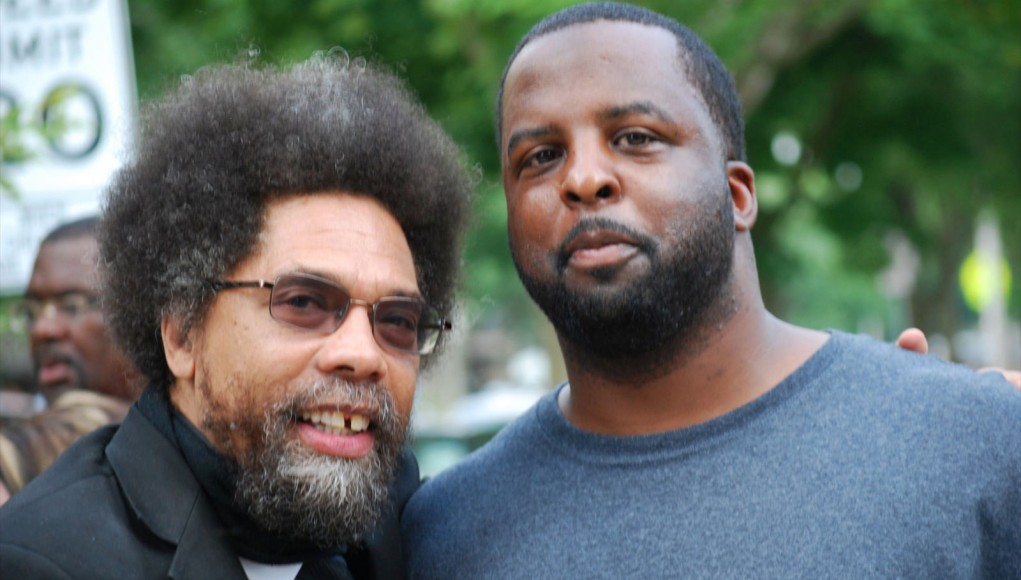At 43 years old, Aaron Hicks has never voted.
Hicks admits, like many black Americans, that his faith in the voting process to meet the needs of black people is low.
“They say the [criminal justice] system is broken but I don’t believe that, I believe it was strategically designed to work against people, and it’s the same for voting,” said Hicks while facilitating a meeting for the Man-Up program, a mentoring and support group for formerly incarcerated men through the Nehemiah Center for Urban Leadership Development.
But while he doubts the impact of voting, the decision for him to vote or not has never been his own. He is one of 6.1 million people in the U.S., as of 2016, ineligible to vote due to felony convictions, otherwise known as felony disenfranchisement.
That’s an all-time high, according to the Sentencing Project.
Disenfranchisement laws vary by state with only two states, Maine and Vermont, having no restrictions. Fourteen states, including Illinois and Michigan, reinstate voting rights for felons once they are released from prison, and 12 states permanently disenfranchise felons, with few exceptions based on the nature of the crime. Three states, Florida, Kentucky, and Iowa, permanently disenfranchise anyone convicted of a felony.
Wisconsin is among 17 other states that disenfranchise felons until they have completed their probation and parole periods and are completely “off-paper,” or no longer under the supervision of the Department of Corrections. In the state, you are still eligible to vote if you have been charged with a misdemeanor and you can vote absentee if you are in jail for a misdemeanor or awaiting trial for felony charges.
Still, state restrictions like Voter ID laws and the need to prove residency present roadblocks for those seeking to vote absentee from jail.
“The restrictions that legislatures have enacted have made it harder for everyone to vote and have disproportionately affected disadvantaged people and that includes people in jail,” said Molly Collins, associate director of the ACLU of Wisconsin.
It is no surprise who felony disenfranchisement hurts the most: those who are disproportionately incarcerated, i.e. black people.
Of the 6.1 million disenfranchised voters, 2.2 million are African American, which means one in 13 voting age black people is disenfranchised — more than four times the rate of non-black disenfranchised voters, according to the Sentencing Project.
One and a half percent of all Wisconsinites were disenfranchised in 2016, but 8.8 percent of African Americans were disenfranchised in Wisconsin.
According to the ACLU of Wisconsin one out of nine Black voters in Wisconsin are disenfranchised compared to one out of 50 white voters, giving the state the 11th highest rate of disenfranchisement in the U.S.
What’s more, due to over half the states disenfranchising its residents after they are released from prison, 51 percent of the disenfranchised population in the U.S. are not in currently in prison or jail.
This means that 4.7 million disenfranchised residents are are tax paying citizens of which a million are black, according to the Sentencing Project.
“If someone is in the community they have a job, paying taxes, and have kids in the school system. It’s not just their right to vote, but it’s a point of reentry or reintroduction into the community,” said Andrea Kaminski, executive director of the League of Women Voters Wisconsin.
But why bar those convicted of felonies from being able to vote in the first place?
There has been little evidence to show that it boosts recidivism rates or deters crime. A 2013 report submitted to the United Nations Human Rights Committee by the Sentencing Project states, “Felony disenfranchisement operates contrary to the goals of ensuring public safety and reducing reoffending by alienating from society those individuals that criminal justice system is simultaneously attempting to reintegrate.”
Despite this, felony disenfranchisement has been largely successful based on its original intent to suppress the black vote.
A 2003 study found that state bans on felons’ voting rights increased in the wake of the Fifteenth Amendment in an effort to circumvent voting rights for black voters. It also showed that states with larger black populations had stricter bans.
When Democratic Gov. Terry McAuliffe of Virginia, a battleground state where one in five Black people cannot vote due to felony conviction, issued an executive order to restore the voting rights of over 200,000 convicted felons following 2016 primaries, conservative media and his Republican opponents accused him of trying to garner votes for Hillary Clinton, likely because they recognized that many of those incarcerated are Black and Latino and therefore more likely to vote Democrat.
The Virginia Supreme Court ruled that McAuliffe’s actions were unconstitutional in July, but he managed to restore the rights of 13,000 voters the following month anyway.
But what does felony enfranchisement mean for Wisconsin, a state with the highest Black male incarceration rate in the nation, a state where 31 of its 56 Black neighborhoods are jails, a state where 20 percent of Black girls receive at least one out-of-school suspension, where 17-year-olds are tried as adults, and a state with most incarcerated zip code in the country, 53206?
It means children are losing their right to vote before they even get it and their parents may not even be able to vote for the officials that put cops in their school in the first place. It means candidates of color can lose by 32 votes and taxpayers can go four decades without ever being able to touch a ballot.
“We don’t give enough information to understand what the voting rights, we’ve had them taken for so long,” said Hicks. “Black people have suffered at the hands of voting and incarceration and you just get tired, but that doesn’t mean stop fighting.”




























